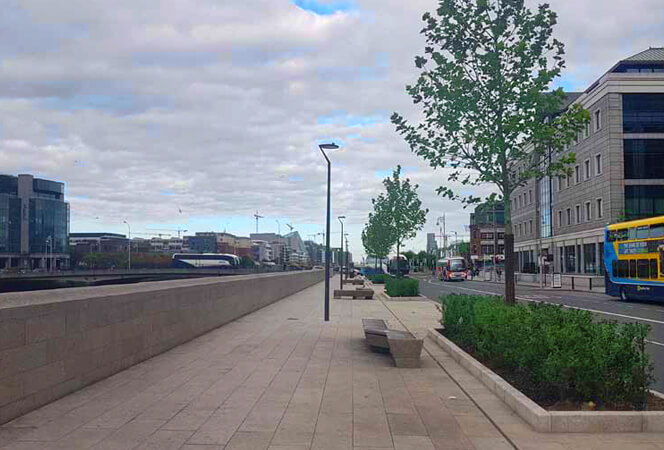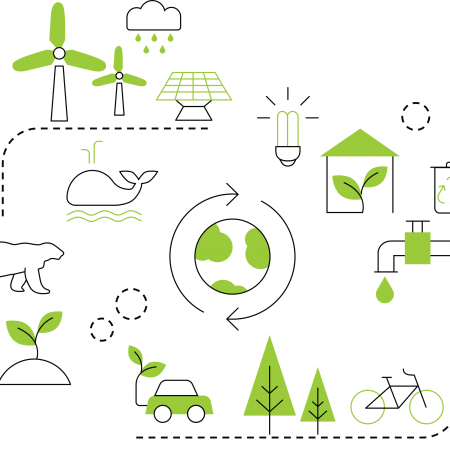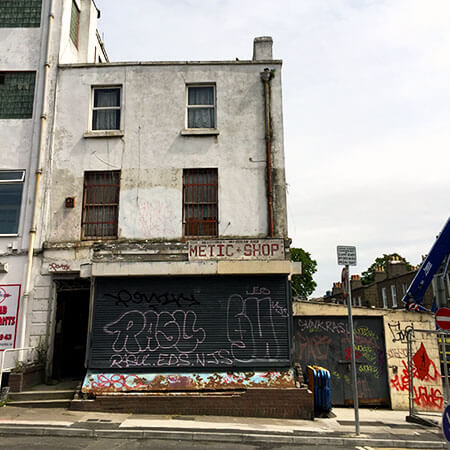Climate action in Dublin city
When we look back at Dublin’s storied history, it’s clear that we are merely part of a long line of caretakers. We’re here to ensure future generations get to enjoy all that Dublin has to offer – from the city’s rich natural habitats in the Dublin Bay Biosphere to the Phoenix Park and its rivers and canals.
However, we know that what we once thought was an infinite resource is under threat and we can no longer sit idle. 2030 has been set as a vital deadline for reaching the goals set out by the Paris Agreement and taking climate action.
Dublin City Council’s Climate Action Plan
In 2019, Dublin City Council published its Climate Change Action Plan for 2019-2024. This sets out how the council is taking action to respond to the climate crisis. It aims to ensure that operations and public service delivery in the city are not contributing to climate change and building climate resilience instead.
The plan has four key targets:
- 33% energy efficiency in buildings, fleet and public lighting by 2020 – This has already been met and exceeded.
- A 51% carbon reduction target – This target was increased when the Climate Act became law.
- To make Dublin a climate-resilient city.
- And to actively engage and inform Dublin’s citizens on climate change.
The plan’s actions that aim to achieve these targets fall into five key areas that align with Dublin City Council’s legislated responsibilities: energy and buildings, transport, flood resilience, nature-based solutions and resource management.

Flood alleviation works, in conjunction with upgrades to the public realm at George’s Quay.
Our progress so far
Dublin City Council reports quarterly and annually on the progress of its climate action targets, which means this plan isn’t allowed to collect dust on a shelf.
Monitoring energy use in all DCC’s buildings helps immensely. To date we have:
- Achieved 36.5% energy efficiency through retrofits of libraries, area offices, fire halls and galleries.
- Retrofitted seven leisure centres using energy performance contracting to guarantee energy savings.
- Received the SEAI Energy Award for ‘Leadership in the Public Sector’ in 2020.
It is a living plan that adapts and responds nimbly to policy changes at international, EU and national levels, as well as to the latest science and, most recently, pandemics.
What changes have been made?
Dublin City Council has set out 199 actions in order to achieve its climate targets. To date, 7.5% of them have been completed, while 86.5% are in progress and ongoing.
The Covid-19 pandemic helped accelerate several of the plan’s actions, particularly the delivery of infrastructure to encourage active travel through walking and cycling by our Sustainable Transport Unit.
Our use of resources is at the centre of climate action.
The pandemic has also drawn attention to our parks and measures to support biodiversity around the city, such as rewilding. Simultaneously, the pandemic also highlighted the challenges we continue to struggle with – including waste, for example.
The actions that address waste in the Climate Change Action Plan fall into the vital area of Resource Management. Our use of resources is at the centre of climate action. By wasting water, food and energy, we are willingly emitting greenhouse gases into the atmosphere.
The most straightforward steps are often the hardest.
Yet, the most straightforward steps are often the hardest. We can make excuses, like: “It’s just one light” or “It’s just one coffee cup”. Old habits die hard. It takes time to unlearn habits built around convenience and find ways to make sustainable practices easy.
Rather than relying on recycling, we are currently working to make it easier to reduce the amount of waste we produce.
MODOS is a key programme in doing this. It works with SMEs to embed circular economy practices into their operations, helping them reduce waste and carbon emissions while also saving money and increasing resilience.
Next steps in achieving Dublin’s climate action targets
Moving forward, we will continue to build on the steps we have taken and challenge ourselves further.
We also hope to continue supporting staff in choosing low carbon sustainable travel options through the Dublin City Council mobility hub, which provides e-bikes and e-cars for staff to use.
Mostly, however, the council looks forward to working with you – the public.
Our action plan is only the beginning.
Climate action is a collaborative effort and our action plan is only the beginning. We are in the process of creating the next City Development Plan, which sets out a big picture vision for Dublin and how to achieve it. From a climate change perspective, this is the most critical land-use plan before 2030.
We are all part of Dublin’s story and making sure that future generations have a city that enables them to live full, healthy lives. So what can you do? Ask us questions! We have an interdisciplinary team working hard to make Dublin climate resilient.
You can tell us what you are doing via sabrina.dekker [at] dublincity.ie




